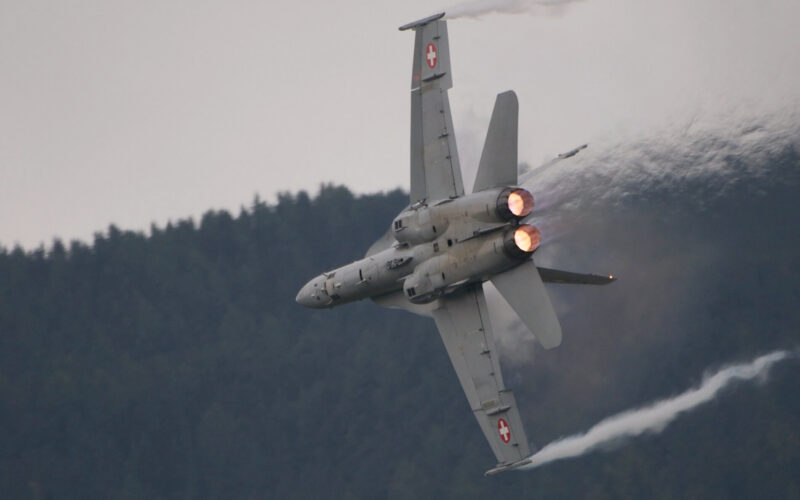On September 27, 2020, five bills will be put to the vote of Swiss citizens through a referendum. Among the questions, one will concern the acquisition of new fighter jets for the Swiss Air Force. A new poll reveals that 58% of voters are in favor of procurement.
The survey carried out by gfs.bern found that 39% opposed the acquisition and 3% had no opinion. While the vote will ask voters whether or not they approve of this project, the choice of the thirty to forty new aircraft will remain in the hands of the authorities. The contract is estimated at around €5.5 billion and should be entirely compensated through technological and industrial transfers to receive the approval of the Swiss parliament.
To replace the McDonnell Douglas F/A-18C/D Hornets and the few remaining Northrop F-5E/F Tiger II antiques that are assigned to secondary tasks, a competition was opened. Among the contenders, a knowledgeable eye will find the usual suspects of the European fighter tenders of the past decade: the Dassault Rafale, the Lockheed Martin F-35, the Boeing F/A-18 Super Hornet and the Eurofighter Typhoon. The Saab Gripen E/F was excluded as it will not be operational before 2023. New jets are to be delivered by 2025.
The price of neutrality
In 2014, voters refused the creation of a fund to acquire 22 JAS-39 Gripen E/F fighter jets from Saab. While Switzerland enjoys the reputation of a neutral country, with its last external conflict dating back to the Napoleon wars, the Federal Department of Defence justified the need for modern fighter jets. “In these times of heightened tension, the Swiss Air Force must be able to maintain air sovereignty for weeks or even months in order to prevent unauthorized use of Swiss airspace,” it reminded. “Our old planes need to be replaced — otherwise, the Swiss airspace will be unprotected from 2030.”
The same ideological debate regarding neutrality is currently agitating Ireland, whose airspace sovereignty relies solely on the British Air Force. For the first time in 45 years, the Irish Department of Defence said it was studying a possible acquisition of an “air combat interceptor”.

